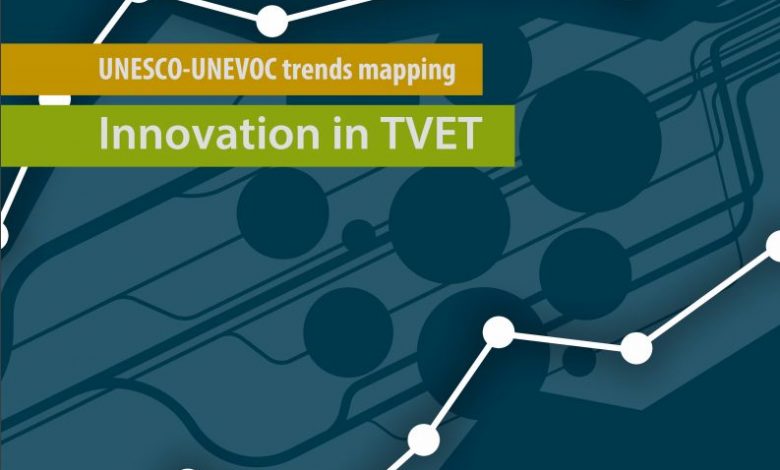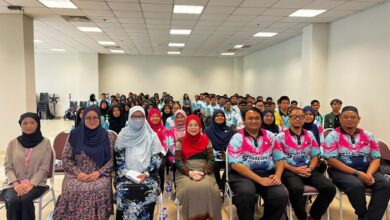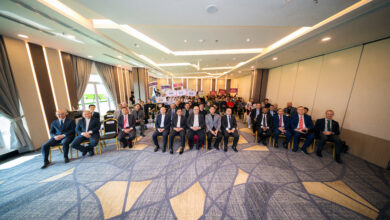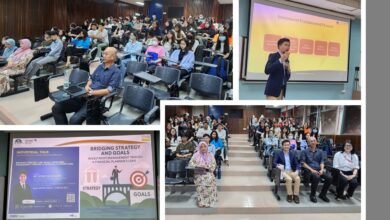Innovation in TVET: System, Policy & Institutional

UNESCO-UNEVOC’s 2018 Global Learning Forum on‘Managing skills in a time of disruption’ noted that the transition to greener economies, the implementation of digital technologies in the world of work and the emergence
of new forms of entrepreneurship, amongst other things, are changing the way we live and work. This scenario is driving technical and vocational education and training (TVET) systems to improve their capacity to identify the future demand of skills (e.g. soft and specific technical skills – including digital, greening and entrepreneurial skills) and to expand access to these skills.
UNESCO-UNEVOC’s trends mapping study on innovation in TVET aimed to improve the understanding and further clarify what innovation means for the TVET community, taking into account the different stages of development they find themselves at and different geographic, socio-economic and political contexts. With this in mind, the study presented a general framework that helps to analyse the development and implementation of innovative practices in TVET, including in organizational practices, ecosystem engagement, teaching and learning processes, and products and services offered by
TVET institutions.
Main findings
The study identified several important issues from the literature review, as well as interesting insights from the data collected by means of the questionnaire and the virtual conference on innovation in TVET that was held in in February 2019:
- Innovation comprises substantial change in the way TVET is practiced by an institution, making it progressively more relevant to its economic, social and environmental context. TVET institutions innovate in different dimensions (organizational practices, ecosystem, teaching and learning processes, and products and services).
• The deployment of a broad set of organizational practices in TVET (including planning, financing, human resource management, administrative structure, and internal monitoring and communication) is crucial to support the development of innovation in TVET. - It is crucial for TVET institutions to consider a comprehensive human resource management approach to build their capacity to develop and
implement innovative practices. - Innovations in the way TVET institutions reach out and foster relationships with external actors (ecosystem) are not only crucial to overcome barriers when it comes to collaboration between the TVET system and other sectors (including business), but can also be pursued with aims of creating a stronger and supportive sense of community between different stakeholders and enhancing the status of TVET.
- Innovations in teaching and learning processes help to enhance the quality of TVET programmes, projects and initiatives. These include the use of learner-centred pedagogies and innovations in the use of information and
communications technology (ICT) in TVET. - Promoting technology diffusion and applied research in TVET can also act as an engine for innovation in local community and the society.
- The great majority of the TVET institutions reported that the lack of time, resources or staff are significant barriers to develop innovative practices.
Recommendations
Based on the results of the literature review, the virtual conference and the results from questionnaire, the study came up with recommendations divided in three different levels: system, policy, and institutional levels.
System level
- Platforms should be developed to provide opportunities for TVET stakeholders to engage with other actors. For example, this can be in the form of local associations or councils.
- Support mechanisms should be developed to enable TVET actors, especially training centres, to map and assess the actors in their local skills ecosystem and their potential to act as partners in the development and implementation of innovative practices.
Policy level
- In addition to promoting the use of innovative practices in teaching and learning processes and the diversification of products and services, TVET policies, strategies and action plans – especially those of training centres – should also put a focus on internationalization strategies to ensure an
efforts are made to engage with the local skills ecosystem. - TVET policies should support the development of mechanisms which enable the identification of skills demands, the establishment of Labour Market Information Systems, and the development of up-to-date curricula.
- TVET policies and legislation should support the development of entrepreneurship in TVET by, for example, making it legally possible for institutions to establish incubators or income-generating activities with a focus on entrepreneurial learning.
Institutional level
- TVET institutions – especially training centres – should develop and implement specific action plans on innovation.
- TVET institutions need to consider different innovative activities for human resource management practices including the development and adoption of employee recruitment standards that focus on innovation skills, appraisals, and incentives for employee performance in suggesting ideas for innovation or in developing innovations, and promotion and career development opportunities.
- Staff should be given sufficient time and resources to develop innovative teaching and learning processes, including the development of products and services.
- Moreover, continuing training programmes should ensure that staff have the capacity to deal with such initiatives.
- Training centres should be supported in the identification and accessing of alternate sources of financing to support the development and implementation of innovative practices (where legally possible).
- Training centres are recommended to implement learnercentred pedagogies and methods such as project-based and problem-based learning with aims of enhancing student engagement and ensuring that programmes also help solve real problems in the local community.
- Training centres are recommended to enhance the use of ICT in courses in order to increase accessibility, effectiveness and quality of TVET. This includes the use of distance learning technologies as well as learning and
teaching technologies.
Read the full report from UNESCO-UNEVOC.




